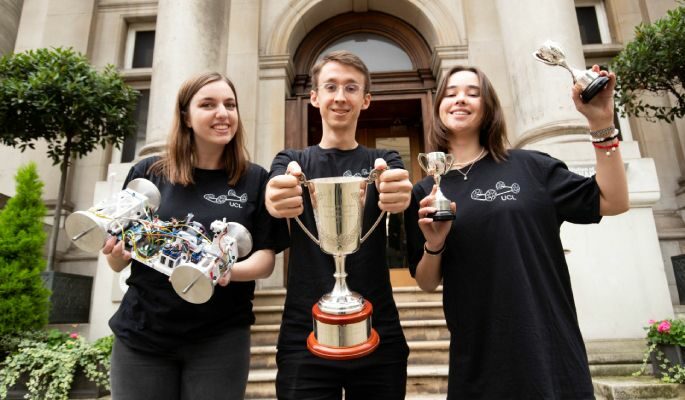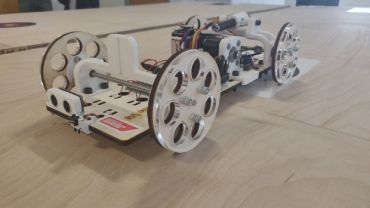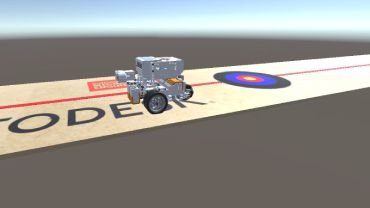-

What's involved:
Each year students are challenged to undertake a specific project.
Each year students are challenged to undertake a specific project. The 2025 project brief is to design, build and test a device to simulate an autonomous robotic charging device such as autonomous electric charging connectors for impaired users or industrial vehicles with hot swap battery charging capability, with automatic connection and disconnection.
The competing device should:
• Complete the specified mission of repeated movements within a maximum time of 3 minutes
• Be started manually and perform the mission autonomously, without any other external support or control of any sort
• Be capable of performing on a real installation where errors in horizontality and track flatness may be present and on a commercial substrate where real manufacturing tolerances are present, without requiring any post treatment or adjustment of the track surface
• Start, return and / or stop on specific targets on the horizontal surface
• Engage with the plug simulator onto the vertical surface target at single or different heights, see 5, 6 and 7
• Simulate the battery charging engagement by remaining in contact with the vertical surface for a given time
-

Students are challenged to undertake a specific project to design, build and test:
- 2018 – internal pipe-climber
- 2019 – external pipe-climber
- 2021 – repeatable vehicle
- 2022 – line launcher
- 2023 – internal pipe-climber
- 2024 – repeatable vehicle
- 2025 – autonomous robotic charging device
News & Updates
View all postsDesign Challenge 2024 National Final results
Read full articleMeet the Design Challenge Founder and our Judges ahead of the 2024 National Final!
Read full articleDesign Challenge 2024 Regional Final results
Read full articleDesign Challenge 2024 participating universities and university technical colleges announced
Read full article
Why Participate?
Industry Partner
This is a remarkable opportunity for industry leaders to join hands with us to support and uphold the future of young aspiring graduates by enabling them to gain real-industry experience, practical employability skills and enhanced business and people skills, all within a set time frame.
Enter the Challenge
The Design Challenge gives students from universities and university technical colleges (UTCs) a taste of ‘real world’ engineering, challenging them to design, create, present and run a device to a strict technical specification.
Enter the Challenge
Previous Winners
"More was learned from the manufacturing, prototyping and testing of our device including failures and successes, providing an understanding of real-world processes before the final reward of having a fully working product."


